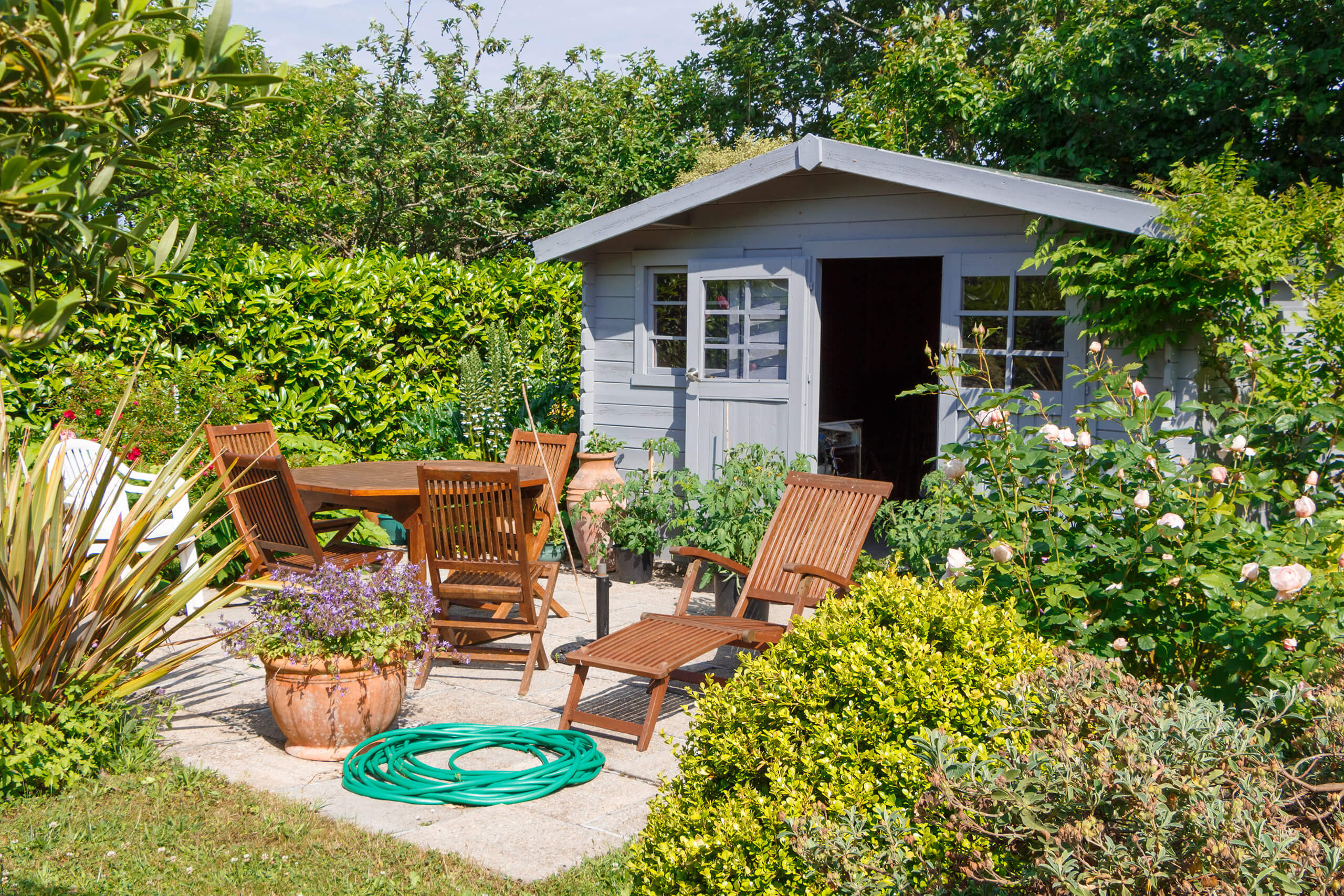With affordable housing in short supply and higher interest rates raising the cost of homeownership, now may be a great time to invest in ADUs.
They can provide additional housing to renters, generate rental income for the owner, and increase a property’s value by up to 35%!
Table of Contents |
What Is an ADU?

An accessory dwelling unit (ADU) is a housing unit that shares a lot with another (usually larger) primary residence.
There are five main types of ADUs:
| A detached ADU... | Has a separate structure from the main home. It may be a backyard cottage or detached garage conversion |
| An attached ADU... | Shares its structure with the main home. It can be an apartment built onto the back or side of a house and may have its own entrance |
| An above-living area ADU... | Is accessible through a stairway inside or outside the main home |
| An above-garage ADU... | Uses an attached or detached garage by adding a second-story ADU above it |
| A garage conversion ADU... | Uses an attached or detached garage by converting the space into a residence |
Pro tip: The terms “tiny home” and “guest house” are often used interchangeably with ADU. However, there are important differences.
While ADUs can be an excellent solution for a unique housing problem, some states are more open to allowing them.
These states have modified zoning codes and regulations to get more people in homes. Some states are even starting to offer financial incentives for ADU creation.
Here are the six most ADU-friendly states according to state laws:
1. California

In 1982, California passed one of the first ADU laws, which banned local governments from outlawing ADU development outright. When many California cities circumvented the law by making ADU approval difficult and costly, the state cracked down again.
Some recent legislation includes:
- SB 9, which authorizes ADUs on land zoned for single or multi-family housing
- AB 671, which requires cities and counties to develop plans to increase ADU construction
- AB 68, which bans cities from implementing minimum lot sizes for ADUs
- SB 13, which eliminates impact fees for ADUs that are smaller than 750 square feet and limits owner-occupancy requirements
- AB 1033, which allows homeowners in participating cities to sell ADUs separately from the main property
As a result of these and other laws, ADUs in California have exploded. Between 2016 and 2021, ADU permits in California increased by 1,421%. Between 2019 and 2022, the number of ADUs constructed grew from 5,852 to 17,460 (nearly 200%).
Additionally, California has created an incentive program for ADU creation, launching a $40,000 grant to reimburse homeowners for the creation costs and non-recurring closing costs associated with ADUs. This grant was initiated through CalHFA (The California Housing Finance Agency).
⚠️ Keep in mind, however, that in many areas, you may only be able to use your ADU as a short-term rental (STR) if you live in the primary residence.
2. Oregon

Oregon is another early adopter of ADUs. According to Eden Dabbs, spokeswoman for Portland’s Bureau of Planning and Sustainability, ADUs “have been allowed in Portland in various forms since 1981.” Now, the rest of the state is following suit.
Recent statewide ADU housing legislation includes the following:
- SB 1051, which allows ADUs in cities throughout Oregon
- HB 2001, which encourages building ADUs on land previously reserved for single-family houses
Except for California, Oregon is the only state that prevents cities from adopting all three of the most common ADU obstructions: owner-occupancy requirements, parking requirements, and discretionary reviews for ADU permits. The state also requires cities to allow both attached and detached ADUs.
Oregon residents who need help financing the addition of an ADU have several options provided by various funding sources.
3. Washington

Washington has allowed ADUs in its largest cities since 1993.
To prevent localities from putting up undue barriers to ADU construction, the state recently passed HB 1337, which some consider the strongest statewide ADU legislation in the country.
Among other things, HB 1337...
- Lifts parking mandates
- Ends owner-occupancy requirements
- Limits impact fees to 50% of the fees for the principal unit
- Legalizes two ADUs per lot (attached and detached)
The bill took effect on July 23, 2023 (though local governments are not required to update their local regulations until six months after their periodic comprehensive plan update).
Other recently-passed pro-ADU legislation in Washington includes:
- 2SSB 5045 lets counties with populations of 1.5 million or more provide a property tax exemption for ADUs rented to low-income households under specified conditions
- HB 1110 requires cities to allow more “middle housing,” i.e., housing types between single-family residences and multi-family apartments, including ADUs.
4. Connecticut

In 2021, Connecticut passed HB 6107, which makes ADUs legal anywhere single-family homes are permitted, with certain environmental exceptions. Under the law, ADUs must be permitted by right (i.e., they don’t require special approval from city officials) and can be attached or detached.
However, the state also allowed cities to opt out of the law by 2023. Of the state’s 169 municipalities, 115 did. However, many cities that opted out set up their own ADU regulations, and now 67% of Connecticut's towns allow ADUs that at least partially satisfy the state law’s requirements.
5. Maine
.png?width=730&height=486&name=maine%20resized%20(1).png)
Maine’s first ADU law (LD 2003) passed in 2022. It allows homeowners to add an attached or detached ADU to plots zoned for single-family use. The law also requires ADUs to be at least 190 square feet and bans cities from setting parking requirements beyond those that already exist for single-family homes.
The law also allows cities to loosen ADU requirements even further, e.g., by allowing more than one ADU on a lot or allowing an ADU for two-family or multi-family dwellings.
That said, the deadline for municipalities to comply with the new ADU law was extended from 1 January 2023 to 1 January 2024. Still, once the law takes full effect, Maine will become one of the most ADU-friendly states.
6. New York

Like some states on this list, New York offers help and incentives to bridge the gap between homeowners and the housing shortage and affordability concerns.
One program designed to help this state’s residents is the Plus One ADU Program. This program is set to merge capital loans with low or no-interest rates and construction financing grants offered by the New York State Homes and Community Renewal. This initiative aims to assist up to 15 eligible homeowners in constructing or converting ADUs on their properties.
In fact, the state has allocated $85 million ($125,000 per homeowner) in grant funds to support the creation of ADUs across the state.
Estimate an ADU Addition with PropStream!
With PropStream, you can easily use the built-in ADU Calculator to estimate what adding another dwelling to a subject property would cost, factoring in aspects like zip code, ADU size, material quality, etc.
This tool is ideal for:
- Homeowners looking to get started in the investing world by “house hacking.”
- Seasoned investors who want to maximize their profits per property
- Agents assessing the potential of a property for a buyer client

